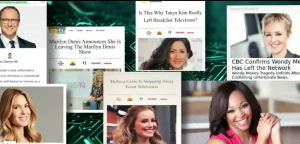Reading: Fraud in Marketing
Fraud is the deliberate deception of someone else with the intent of causing damage. The damage need not be physical damage—in fact, it is often financial.[1]
Provisions under the criminal regime of the Competition Act (https://www.competitionbureau.gc.ca/eic/site/cb-bc.nsf/eng/02775.html) prohibit materially false or misleading representations made knowingly or recklessly, deceptive telemarketing and deceptive prize notices. [2] A representation, omission, or practice is deceptive if it is likely to:
- mislead consumers and
- affect consumers’ behaviour or decisions about the product or service.
When it comes to marketing fraud, the two key words are deliberate deception. In a legal setting, a judge asked to rule on a marketing fraud case would need to evaluate the extent of the deception and the impact of the deception on the consumer. Under the criminal regime, certain practices are brought before the criminal courts and convicted the person is liable to a fine of up to $200,000 and/or imprisonment for up to one year. For our purposes, though, it is more useful to begin outside the courtroom with the basic starting point of marketing: the goal of marketing is not to deceive the customer; it is, in fact, to build trust.
When we consider the elements of the marketing mix—product, price, promotion, and distribution—there are opportunities for deception in each area.
Product: Is the product designed and manufactured as the customer would expect, given the other elements of the marketing mix? Is the customer warned about the product’s limitations or uses that are not recommended?
Price: Is the total price of the product fairly presented to the customer? Is the price charged for the product the same as the price posted or advertised? Has something been marketed as “free”? Does the company disclose information about finance charges?
Promotion: Can claims made to consumers be substantiated? Are disclaimers clear and conspicuous? For products marketed to children, is extra care taken to accurately represent the product?
Place (Distribution): Does the distribution channel deliver the product at the price and quality promised? Do other companies in the distribution channel (wholesalers, retailers) perform as promised and deliver on expectations set for product, price, and promotions?
Marketing Fraud
From a marketer’s point of view, the story demonstrates a number of different types of fraud, which had devastating consequences for both shareholders and stakeholders. Deliberate deception was part of the company’s strategy, and it played a dominant role in all aspects of marketing. Here are the top 10 fraud scams in 2016 as recorded by Bloomberg.
(https://www.bnnbloomberg.ca/canada-s-top-10-fraud-scams-in-2016-1.685562)
FAKE ONLINE ENDORSEMENTS

The #10 fraudulent scheme in 2016 is when “Consumers are often enticed to purchase a product or service based on reviews by social media influencers. Unfortunately, these reviews may not be genuine and the influencer may have been paid by a company to be used as a marketing tool.” [3] A series of deceptive advertisements are lying to consumers by using a popular scamming technique that has reportedly netted more than $1 billion worldwide.
Watch the VIDEO: Fake online influencers in Social media steal celebrity identities to sell products
(https://www.ctvnews.ca/video?clipId=1564905&jwsource=cl)
Canada’s anti-fraud centre (https://www.antifraudcentre-centreantifraude.ca/index-eng.htm) tracks and records complaints. Sadly deceptive practices even occur during the COVID-19 crisis.
- https://www.law.cornell.edu/wex/fraud ↵
- https://www.competitionbureau.gc.ca/eic/site/cb-bc.nsf/eng/02775.html ↵
- https://www.bnnbloomberg.ca/canada-s-top-10-fraud-scams-in-2016-1.685562 ↵


